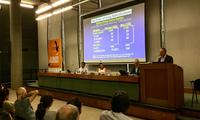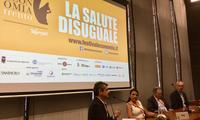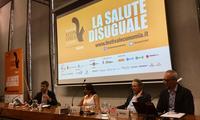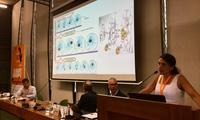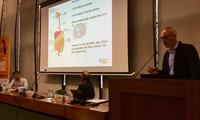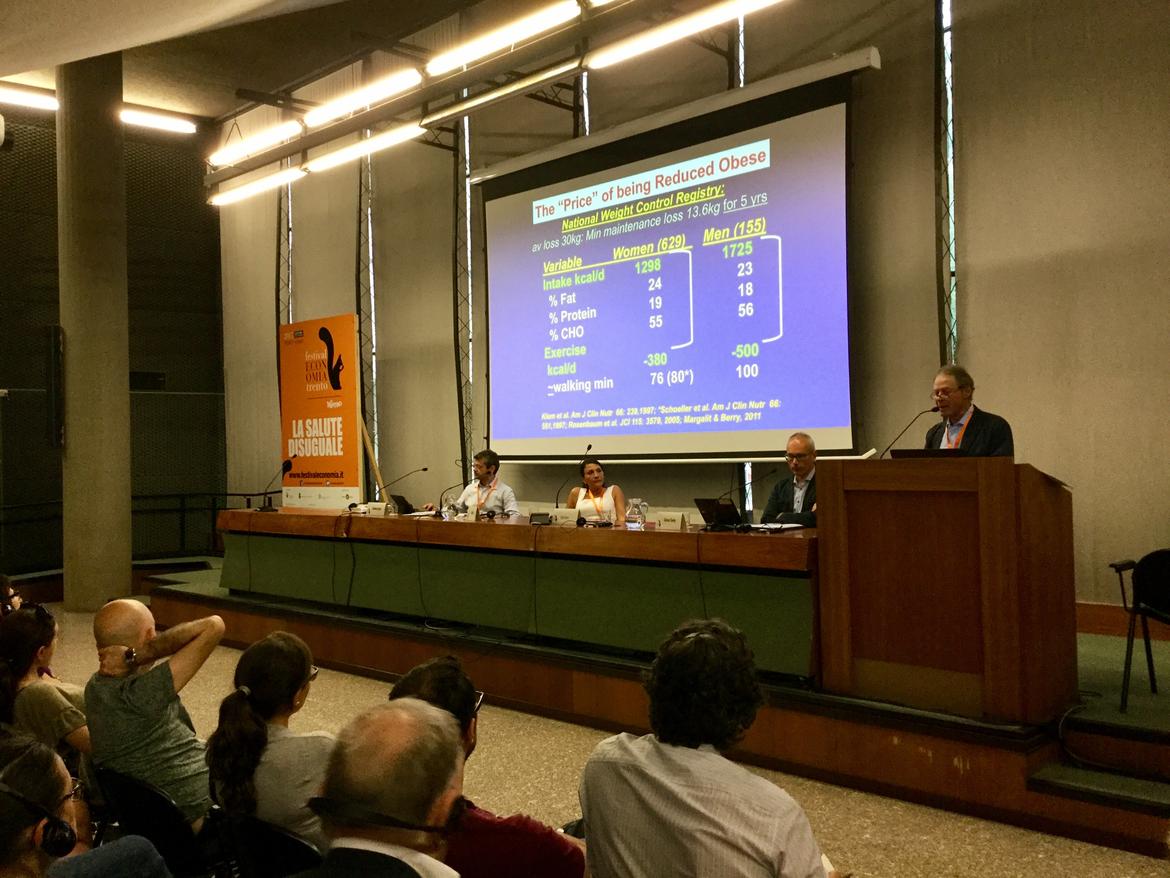
Andrea Segrè introduced the meeting discussing the meaning of the word “diet”, starting from his Greek origin, which is “life style”. Thus, Mediterranean diet should involve relations, conviviality, education, traditions, seasonality, exercise, and not only food. Prof. Segrè underlined the importance of a universal Mediterranean dietary pyramid, based on psychophysical balance and on economic, social and environmental sustainability, which can also be applied at the local level.
The first speaker, Elliot Berry, answered three questions on the big problem of obesity; why is it so difficult to eat less and move more? Why is weight loss so difficult to maintain? Why is activity the solution? He analyzed demographic and lifestyles factors associated with adherence to the diet. “Fat and fit is better than being lean and lazy”, he said.
Iris Shai focused on the actual effects of Mediterranean diet on mobilization of fat storage pools and cardio-metabolic health, presenting long- term clinical trials, such as the DIRECT-PLUS study, which is to measure the ability of high polyphenol intake and exercise to reduce the risk of chronic disease.
Kieran Tuohy underlined how microbe interactions in the gut can reduce chronic disease risk, starting from the assumption that the gut microbiota has been recently recognized as an organ in its own right, with important physiological function in humans. He presented a study on apples and their capacity to lower risk of cardiovascular disease through interactions with the gut microbiota and its metabolic activities.







